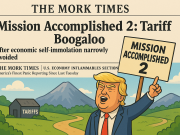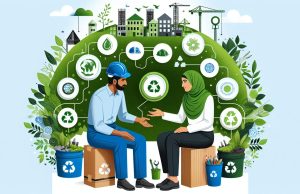As the world steadily emerges from the shadow of the global pandemic, the landscape of work as we know it has undergone seismic shifts. The rapid advancement of remote working capabilities, the accelerated integration of technology into daily operations, and the evolving employee expectations are just the tip of the iceberg in the post-pandemic workplace evolution.
At The Work Times, we delve into the heart of these transformations, examining how businesses across the globe are navigating the new work dynamic. We’re not just witnessing a change in where people work, but also in how they work, why they work, and what work means in the grand tapestry of life.
One of the most evident changes has been the pivot to remote work. Companies have had to adapt to this new model in real time, overcoming challenges related to communication, team cohesion, and productivity. This shift also brought forward the importance of work-life balance and mental health, with employees and employers alike seeking a new equilibrium. But is this a sustainable model for the future? What are the long-term effects on corporate culture and employee well-being?
We’re seeing an incredible uptake in new technologies that facilitate remote collaboration, automate mundane tasks, and create more inclusive work environments. The adoption of these tools at a breakneck pace raises questions about the future of employment and the skills workers need to stay relevant in their industries.
The psychological impact on employees is profound. Organizational psychologists point out that while some workers thrive in a remote setting, others struggle with isolation and burnout. The way companies address these challenges now is setting a precedent for the future mental health landscape of the workforce.
What can history teach us about adapting to radical shifts in working environments? Previous industrial revolutions brought about significant social and economic changes. Can we draw parallels between those times and the current transformation? Are there lessons to be learned that can help smoothen our transition into the future of work? Our investigation takes us through the pages of history to better understand the context of our current situation.
Moreover, we critically assess the sustainability of these workplace changes. Are they merely a reaction to an unprecedented global event, or are they indicative of a more permanent shift in our work culture? We speak with human resource professionals who are on the front lines of implementing and managing these changes within their organizations, gathering insights on the challenges and successes of this transition.
Finally, we explore how companies can prepare for the next wave of workplace transformations. Futurists who specialize in workplace trends contribute their forecasts and potential strategies for remaining agile in an ever-evolving work landscape. The conversation extends beyond the immediate effects of the pandemic, prompting our readers to consider the broader implications of these changes on society, culture, and the economy.
Our feature invites you to engage with these critical issues and reflect on the future of work. It is an opportunity to ponder the lessons we are learning and to envision the paths that lie ahead. As we navigate these uncharted waters, it is clear that adaptability, foresight, and a willingness to embrace change are essential coordinates on the map to the future of the workplace.



























